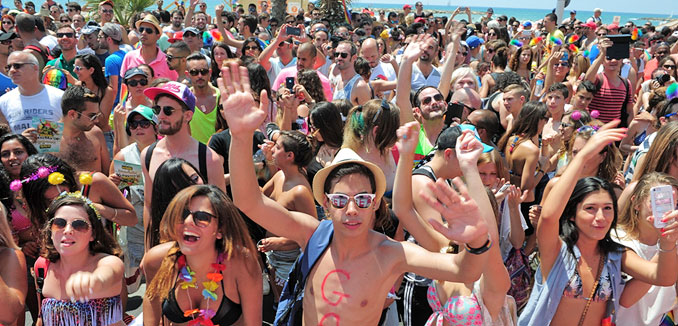Some 150,000 Israelis and foreigners took part in the 16th annual gay pride march through the streets of Tel Aviv on June 13, according to a statement from city hall. This stands in dramatic contrast to the decision by the United Nations General Assembly to choose Ugandan Foreign Minister Sam Kutesa as its next president. Kutesa has defended the Ugandan president’s harsh anti-gay policies and said that being gay is “wrong for our young people.”
In marking the Tel Aviv Pride march’s success, Mayor Ron Huldai expressed his delight at the festivity:
We, in our city, warmly adopt this community and see it as a most important part of the urban fabric.
The Tel Aviv pride party week is one of the largest of its kind in the world. Among those joining in the celebration was the U.S. Embassy in the city.
Pride week is merely the highlight of year round activities in arguably the Middle East’s most open city. According to the AP:
Tel Aviv is one of the few places in the Middle East where gays feel free to walk hand-in-hand and kiss in public. The city has emerged as one of the world’s most gay-friendly travel destinations in recent years, in sharp contrast to the rest of the region.
Visitors from around the world congregated in the coastal city to join in the party. David Taffet of the Dallas Voice added another reason for the specific focus on Tel Aviv.
Because of discrimination against gays and lesbians in Russia as well as Russia’s historical antisemitism, many LGBT Jews have emigrated from Russia and settled in Tel Aviv.
In the April 2013 issue of The Tower Magazine, Zvika Krieger took a deeper look at the support for gay rights in Israel, and the specific struggles concerning the adoption of children and surrogate parenthood for gay couples. Read it here.
[Photo: Kfir Sivan / Tel Aviv Municipality]




